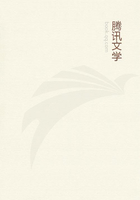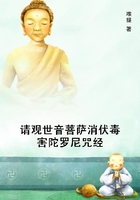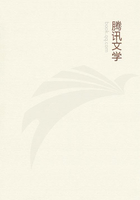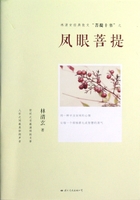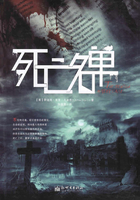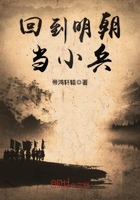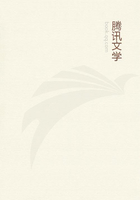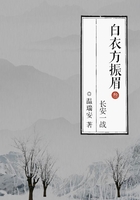Among the different ceremonies still in use at a country wedding, one particularly deserves our attention, on account of the symbolical representation of the means to which the family of the bride once had recourse to prevent an abduction. On the day fixed for the wedding the doors leading to the homestead of the bride are closely shut. Sometimes a temporary wooden wall is erected to preserve the family from intrusion. The wedding-songs still in use in the Government of Toula speak of the necessity of defending the approach to the bride's residence by oak trees, cut down to block up the road, and by shields arranged before the principal entrance of the homestead.
The bridegroom and his friends wear a warlike dress; they are mounted on horseback, and carry guns and pistols. Such, at least, is the custom in the western provinces of Russia, whilst in the southern the whip, carried by the bridegroom's best man, appears to be the only weapon in use. The wedding-songs speak of arrows, shot in the direction of the bride's home, and of stone walls broken down, in order to take possession of her. The bridegroom and his followers are regularly met like foes. In the Government of Perm it is the custom for the father of the bride to fire a pistol over their heads, of course a pistol charged only with powder. The same custom is also in use in certain parts of the Government of Archangel. The wedding-song speaks of the bridegroom's train in the following terms:
They will come to the maiden's father With war.
They will rob him, And imprison the mother.
They will take the young girl away To a strange land.
But capture, as we have already seen, was not the only mode of contracting marriage among the Slavs, even in the earliest period. According to the chronicle of Nestor, the Polians never had recourse to it. Instead of carrying off his bride by force, the Polian bridegroom preferred to pay to her father, or her family, a sort of pretium nuptiale, or bride-price. This custom of the Polians gradually became the general usage among all Slavonic tribes. In Servia, according to Vouk Karadjich, the sums of money paid to the bride's father by the bridegroom's family were so exorbitant that Georgius the Black issued a proclamation declaring it to be illegal to ask from the bridegroom more than a single ducat. In our days, says Bogisic, wives, as a rule, cannot be bought by their future husbands, but a reminiscence of this old custom is still preserved in the fact that the bride's father receives from the bridegroom a gift in money, varying from one to six ducats, according to the fortune of the giver.
Wives were also bought and sold among the Slavonic tribes of Austria. According to an old usage of the Loujichan, a Slavonic people inhabiting certain districts of Hungary, the bridegroom, on entering the homestead of his bride, apostrophised the father thus: "Pray do tell me if you have a cow to sell? " A Bohemian wedding-song puts into the mouth of the bridegroom's best man the following sentence: "Please deliver to me the bride. I will give you a good price for her. The only reason I have for being here is that I may pay you in heavy thalers." No longer ago than the beginning of the last century, young men wishing to marry were in the habit of going to the fair at Krasni Brod, where unmarried women and widows, surrounded by their relations, awaited their coming. Each chose the woman he liked best, covenanted with her parents as to the amount of money to be paid for her, and proceeded to the ceremony of marriage. Polish wedding-songs also mention the custom of buying wives.
In Posnau the following ceremony is still observed on the occasion of a betrothal: The bridegroom puts a small piece of money on the shoes of his bride, another on her knee, a third on her shoulder, a fourth on her head. It is only when this ceremony has been performed that the father delivers the maiden into the hands of her future husband.
I have already mentioned the fact that the Payment made in Old Russia by the bridegroom was known under the name of veno.
The true meaning of this word is revealed by the use which is made of it by the translators of the Scriptures. In a Slavonic version of the words addressed by Jacob to Laban, when he asked him for the hand of his daughter Rachel, the translators write as follows: Increase the sum of the veno as much as you like and Iwill pay it to you, and you shall give me this maiden to wife.(11*)In modern times the veno is mentioned only in certain wedding songs. Another term, kladka, has replaced it in most parts of Great Russia. This payment, amounting in certain parts of Russia to the sum of one hundred, and even of two or three hundred roubles, is made to the father of the bride. As a rule, the father disposes of the money in favour of his daughter, for he gives her as dowry a larger or smaller sum, according to what he has received from the bridegroom. But this fact cannot be brought forward as a proof that the kladka belongs by right to the bride.

